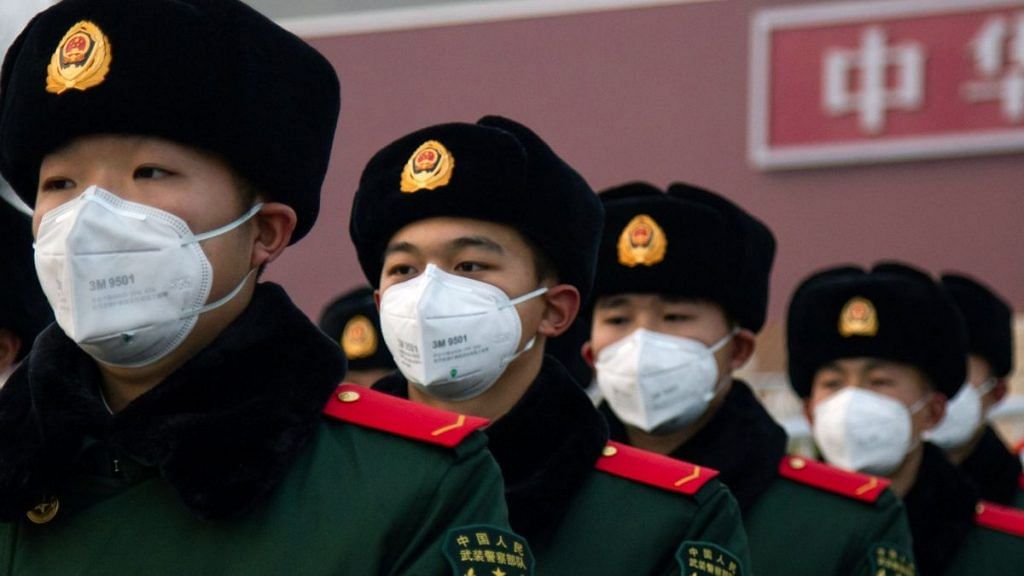The coronavirus pandemic isn’t taking a toll only on economy but it is also affecting our relationship with democracy. We have gone from blaming democracy for homeless migrant workers to the Tablighi Jamaat congregation. We have secretly fantasised about enforced discipline of authoritarianism to tide us over the coronavirus pandemic and lockdown.
When the news of the coronavirus began to flood social media in late December and early January, there was a belief that the democratic governments around the world will soon find a solution to the problem. In India, too, there was hope that all departments of the Narendra Modi government would work in tandem, like we had seen in the past during terror attacks or in wartimes.
By March, though, the belief started changing. In developed countries such as Italy, the UK, the US, Spain, France and Germany, the situation turned from bad to worse. The US, the biggest democracy in terms of economy, was dragging its feet. Its president Donald Trump was making one irrational statement after another. The only time he sounded smart was when he requested India for hydroxychloroquine (HCQ). But soon, it was clear: a democratic, united fight against the pandemic would only be found in Hollywood movies. Reality was a mess.
Also read: India’s democracy deficit comes in the way of its battle against COVID-19
Loving autocracy
People’s social media timelines were flooded with news of deaths and predictions that crores of people are going to get affected by the coronavirus. That’s when people secretly started rooting for autocratic rule. Democracy was giving too much freedom. So India’s love for strict rules and school-like punishments began to resurface. Democracy, some said, was hindering the fight against the coronavirus.
Late Rishi Kapoor demanded that an emergency be declared to keep people in their homes and obey the lockdown. Democratic India was being projected as a failure because it was attacking doctors and nurses. A police officer’s hand had been chopped. The hitherto unknown Tablighi Jamaat claimed its fame by becoming, as projected by pro-government channels and bigots on social media, the super spreader of the coronavirus. It is the anything-goes nature of democracy that allows such mishaps to occur again and again.
For many on social media, the initial dislike for China turned into admiration over its tough, autocratic manner in which the lockdown was imposed. For middle-aged uncles picking holes in the democratic system, for whom things like democracy, freedom and human rights were “soft, endearing terms that sound good during peace time”, China finally succeeded in controlling the spread of the coronavirus because it showed “national character” whereas European countries like Italy didn’t and therefore struggled.
“In India, citizens showed their unity while clapping and banging thali. But in the end, they submitted to the call of one person.” The elders locked in their homes recalled the Emergency when all the offices and trains ran on time. “That kind of discipline is required to fight a pandemic,” they said.
Also read: Legal autocrats are on the rise. They use constitution and democracy to destroy both
Giving up on democracy
As the coronavirus continued to spread, people no more in love with democracy started wishing for a powerful leader who could keep everyone forcibly at home, a leader who will single-handedly revive the economy by forcing people to work 10-15 hours a day. And once the pandemic has been conquered, they will work so hard under that leader that India will become a world power within a decade.
Bollywood star Kangana Ranaut’s celebrity sister Rangoli Chandel called for a complete ban on national elections so that PM Modi can continue to rule because what, after all, is a democracy? And why care about poor migrant labourers who just wanted to exercise their democratic rights and return to their homes thousands of kilometres away, even if it meant they had to walk hungry and thirsty? They could have simply stayed where they are. Would they have been able to travel in lockdown if they were in China?
Then we learnt that an app, Aarogya Setu, wants to collect our data to contact-trace coronavirus cases — only, there was no limit to the amount of data it could collect from us. The Modi government then fixed some security flaws, and is now on its way to make its use mandatory — it has already made it for its employees and for people living in ‘red zones’.
It’s a wake-up call. Be it any part of the world, and regardless of the situation, you can’t let go of your democratic rights. Life is not only about surviving a pandemic, it is much more than that. It is arts, literature, cinema but most of all, it is people, and from every strata. Laughing, crying, struggling to make a life for their families. For them and us, democracy is a necessity. Autocracy is that weak moment in which citizens don’t want to take the responsibility of their democratic rights. Autocracy isn’t good for anyone, not even the autocrats. By the way, a second wave of coronavirus is back in China.
Views are personal.
